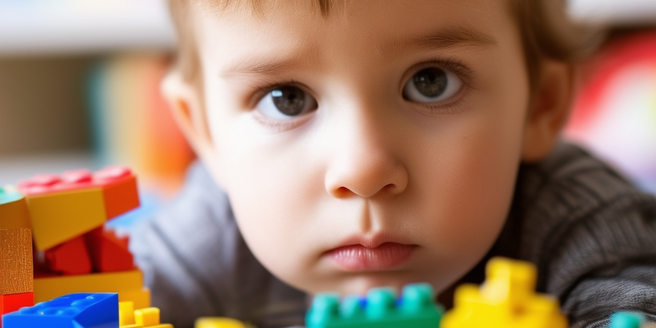
Understanding the Basics of Children’s Brain Development
The development of a child’s brain is an intricate and swift process beginning at birth, with the formation of neural connections crucial for cognitive, emotional, and physical growth. Influences include the child’s genes, which establish a neural development baseline, their environment which provides stimuli to learn and adapt, and nutrition that ensures sufficient energy for brain growth. Providing a child with a supportive environment and a nutrient-rich diet can significantly enhance their overall brain development. Thus, brain development in early years involves a complex interplay between genetics, environment, and nutrition- each playing a distinct yet interwoven role.
The Role of Genetics in Cognitive Development
Genetics play a substantial role in determining our range of cognitive abilities even before we are born. The genes we inherit from both our maternal and paternal lines create an interactive guide that sets the boundaries for these abilities. However, their expression is a complex process that can be significantly influenced by our surrounding environment. This includes our upbringing, education, cultural and socio-economic background. Even seemingly minor factors like availability of nutritious food and medicine, quality of education, cognitive stimulation and emotional support can impact the expression of our genetic material. Hence, although our cognitive capacities are primarily shaped by our genetics, the manner in which they are nurtured and developed is also significantly influenced by our upbringing and environmental factors.
Influence of Environment and Experience on Brain Growth
The environment in which a child grows up greatly influences their growth and development, including the evolution of their brain. This includes all experiences, whether positive or negative, that leave a deep impact on overall development, notably the brain. These experiences play a critical role in establishing neural connections, which are key to cognitive, like learning and problem-solving, and emotional development. The child’s mental and emotional resilience against challenges is largely determined by these early encounters. Similar to how a seed requires appropriate conditions to grow, optimal development for a child’s brain is rooted in a fostering environment and experiences. Both positive and negative experiences are crucial in forging the neural connections foundational to cognitive and emotional development.
The Importance of Nutrition in Children’s Brain Development
Proper nutrition and a balanced diet are crucial not just for a child’s physical growth, but also for cognitive and psychological development, thereby building a solid foundation for a healthy and productive adulthood. Each nutrient plays a unique role in a child’s growth, acting like building blocks for the development of essential brain structures and functions. Thus, it’s essential for parents and caregivers to provide children with nutrient-dense meals. Proteins, carbohydrates, fats, vitamins, and minerals in these meals significantly influence brain functions like memory, attention, and overall mental agility.
Stages of Brain Development from Infancy to Adolescence
The human brain, a complex organ, doesn’t cease to change and develop even in adulthood, contrary to popular belief. The most notable growth and change periods occur during infancy and again during adolescence, when the brain undergoes significant transformations. In infancy, the brain proliferates neurons, changes structure, and learns to process environmental information, laying cognitive and behavioral foundations. It experiences another growth burst during adolescence, especially in the prefrontal cortex, which regulates decision-making and self-control.
Therefore, it’s crucial for parents and educators to understand these phases and provide the right support and stimulus, fostering cognitive growth, psychological development, and encouraging overall well-being into adulthood. This knowledge allows them to tailor their approaches to suit the developmental needs of the children and adolescents under their care, contributing to their cognitive and emotional development and preparing them for adulthood’s challenges. Thus, understanding these key brain development stages is vital and multi-faceted.
Ways to Boost Your Child’s Mental Growth and Development
Encouragement, support, and providing a wide array of opportunities for exploration can significantly boost a child’s mental growth and development. These provisions allow children to expand their perspectives, learn new skills, and build resiliency, equipping them with mental agility that will serve them long into adulthood.
Fostering a conducive environment allows children to navigate their unique developmental stages seamlessly. This involves creating a safe yet challenging space where children explore their abilities, test their limits, and learn from their experiences. Recognizing each child’s unique rhythm of development is key to promoting self-growth.
As caregivers, parents should be observant and receptive to the evolving needs and interests of their children. Active participation in their child’s development requires consistent attention, emotional presence, and apt communication. Through this committed involvement, parents can nurture their child’s mental growth, providing the resources they need to adapt and grow.
